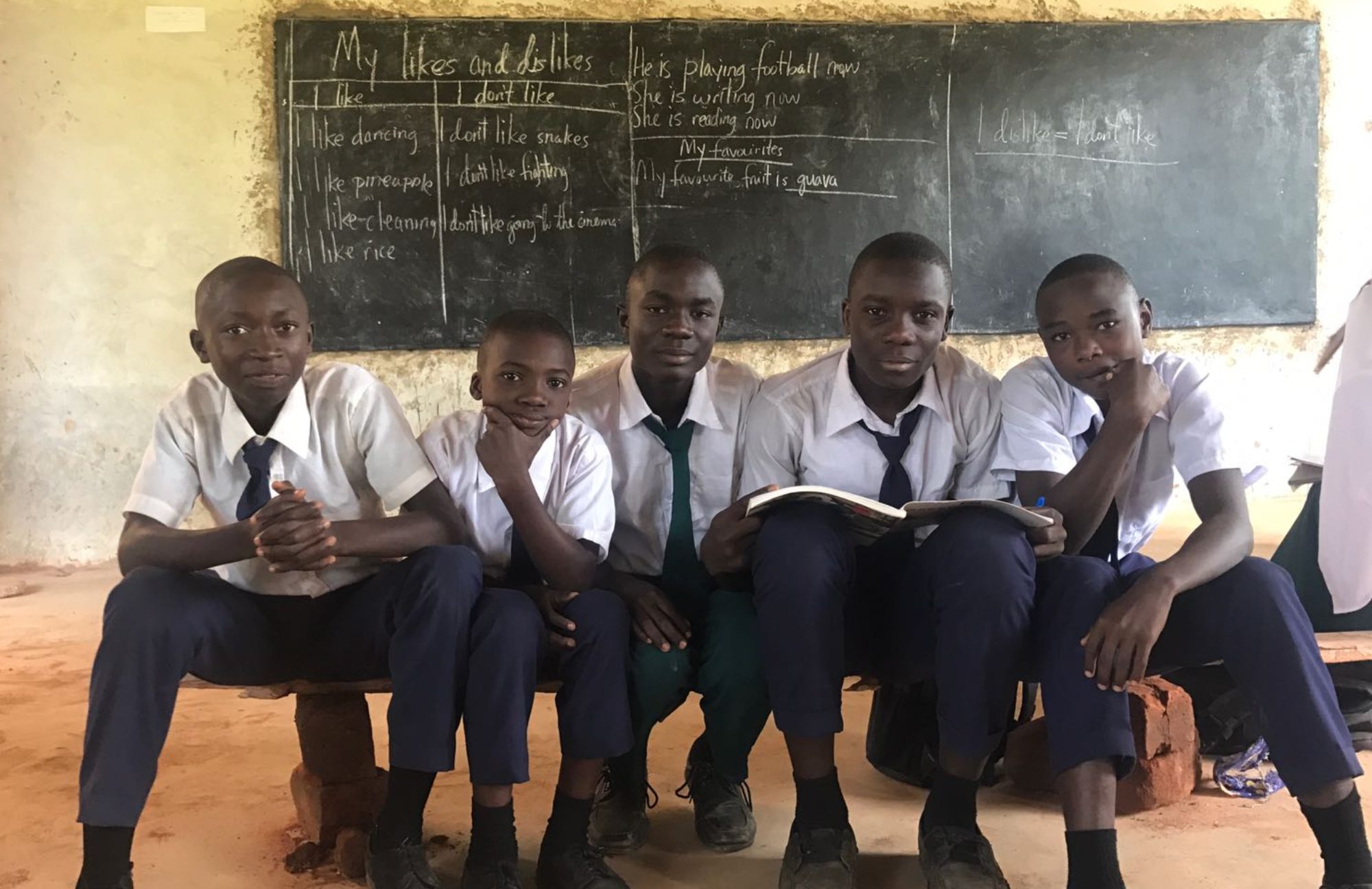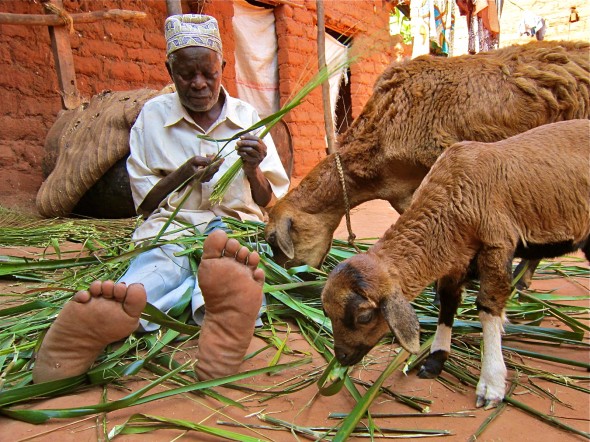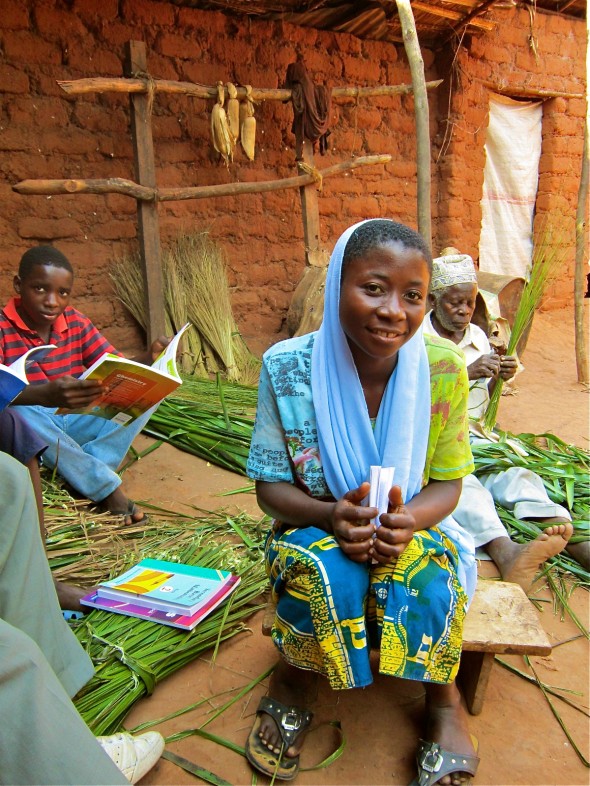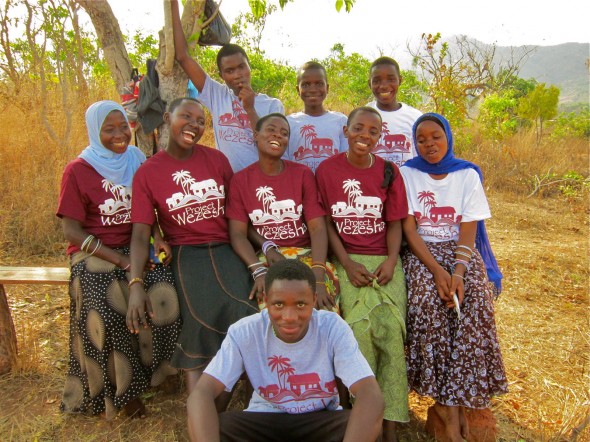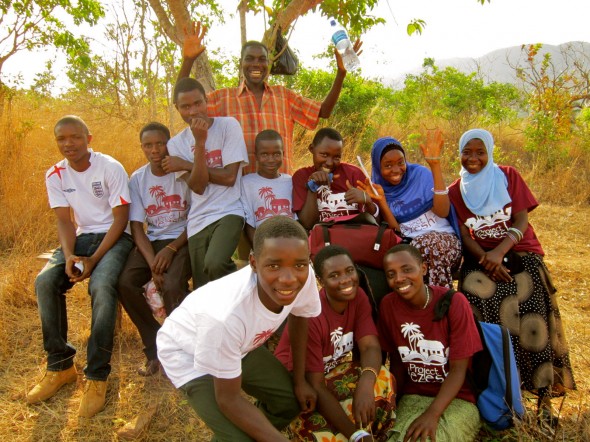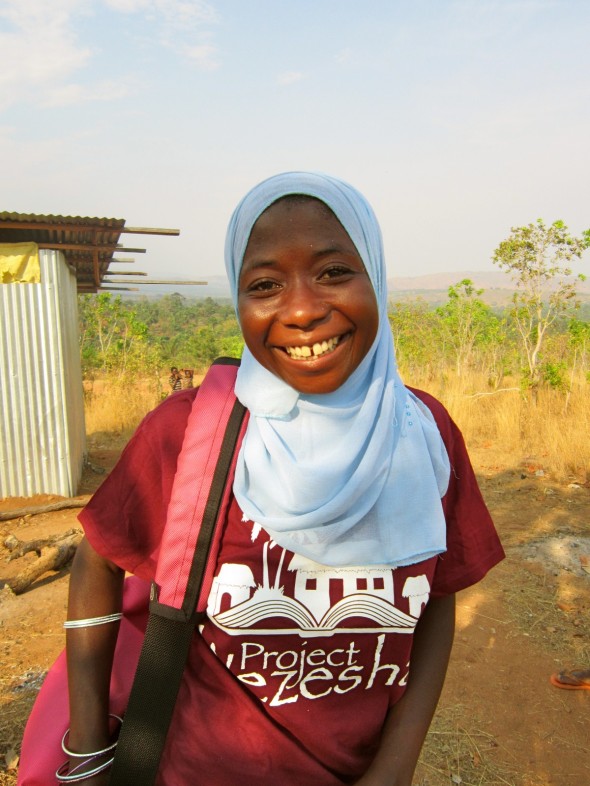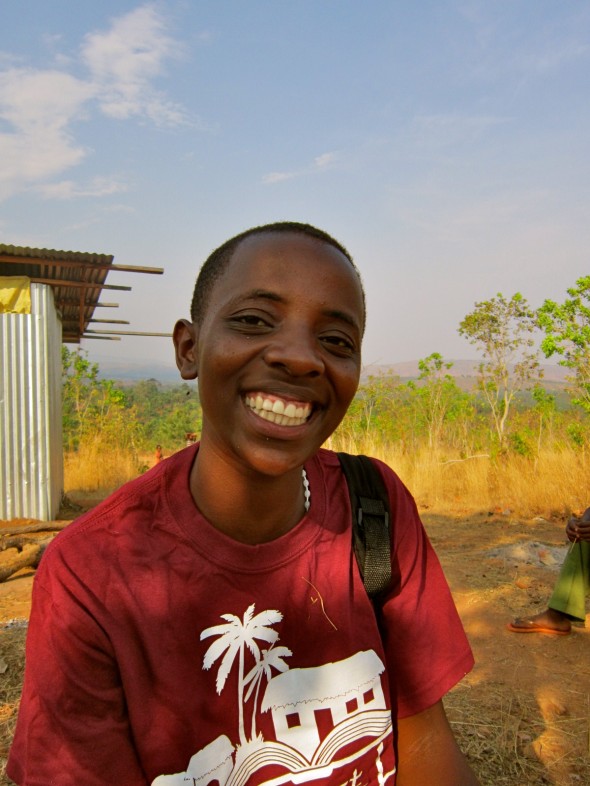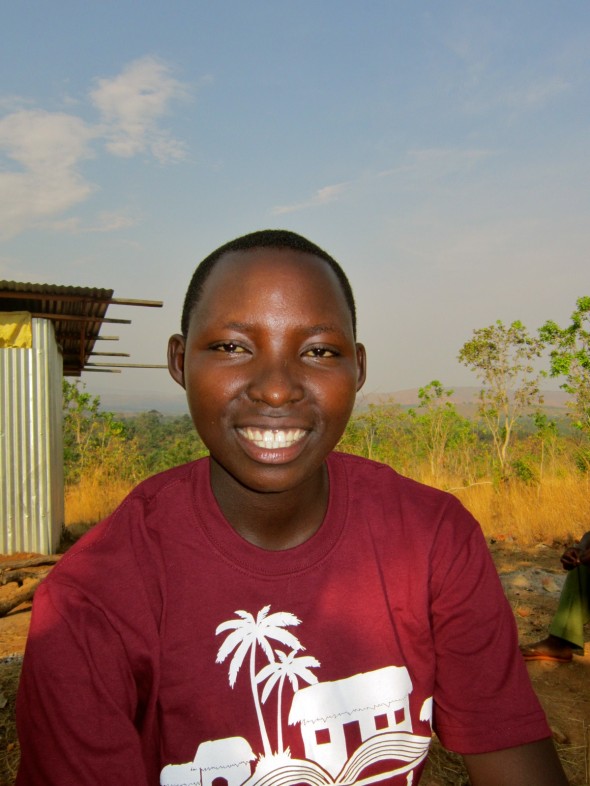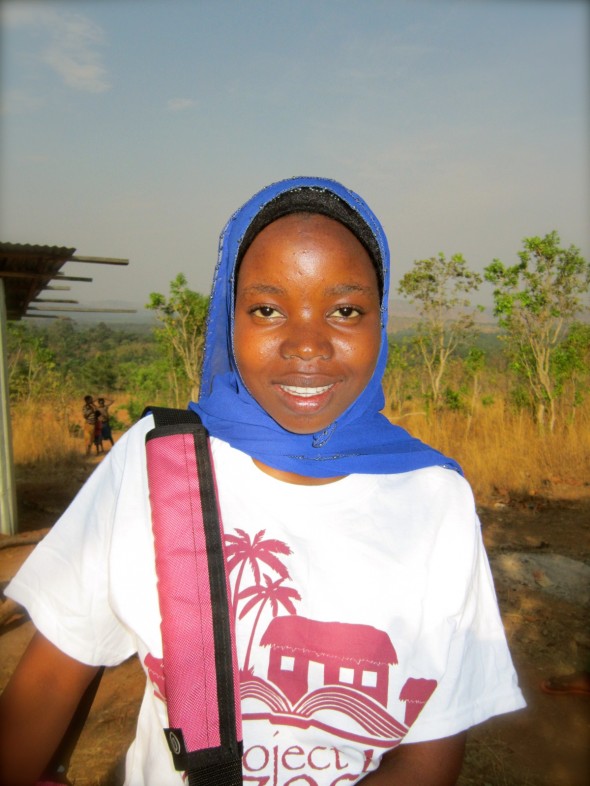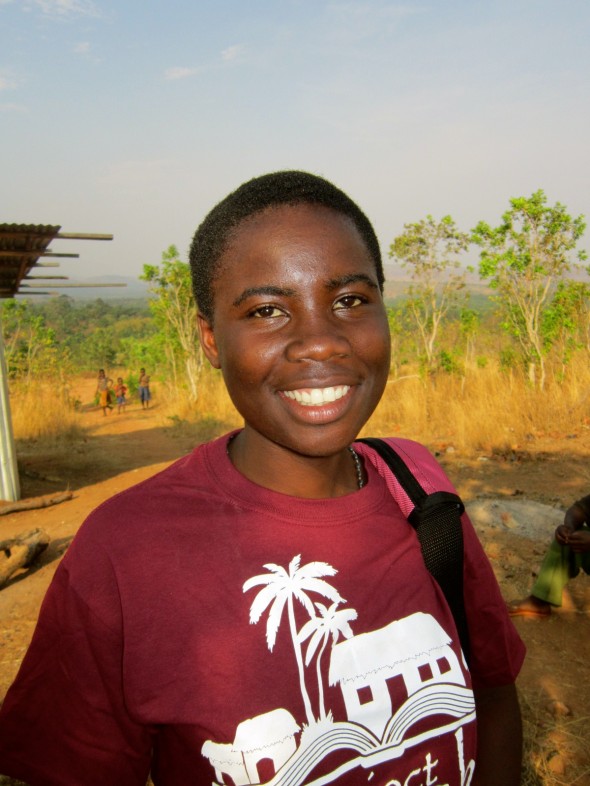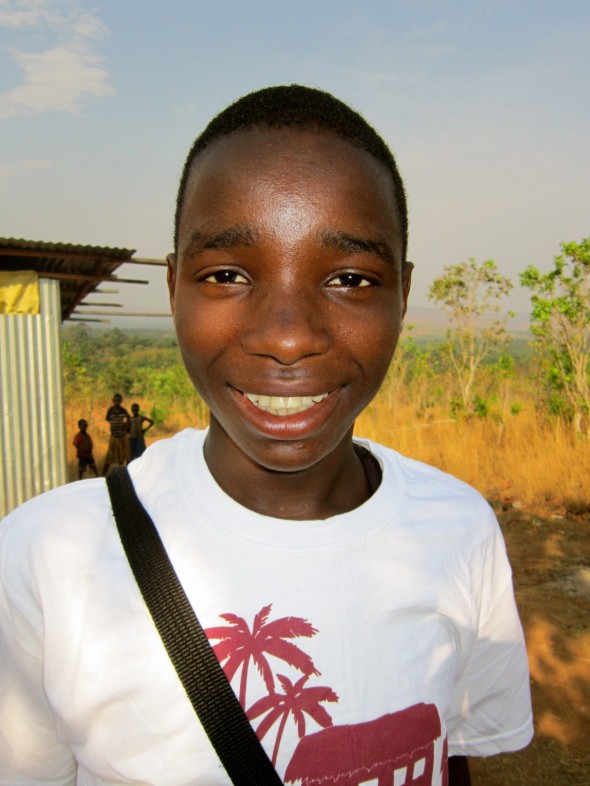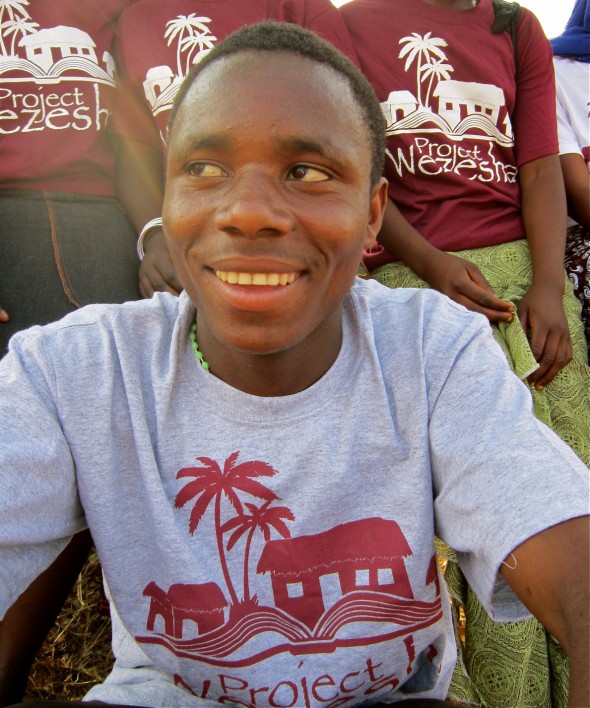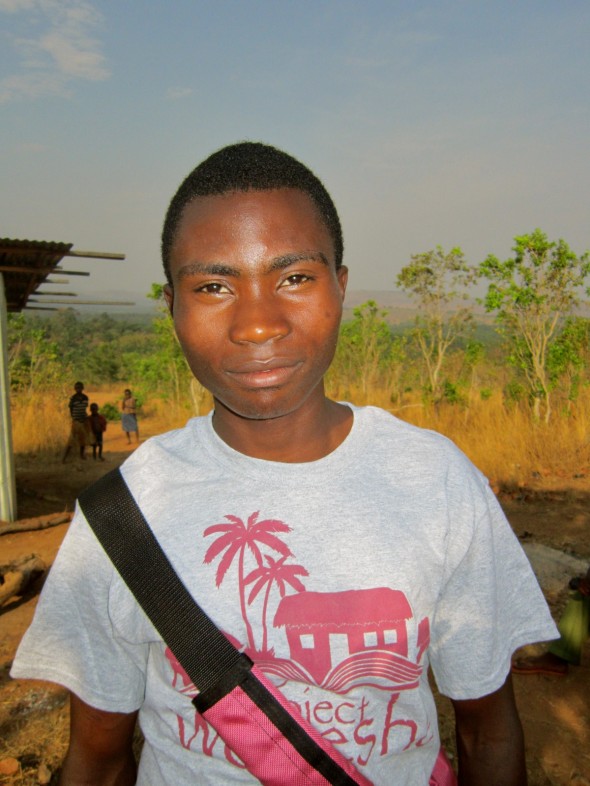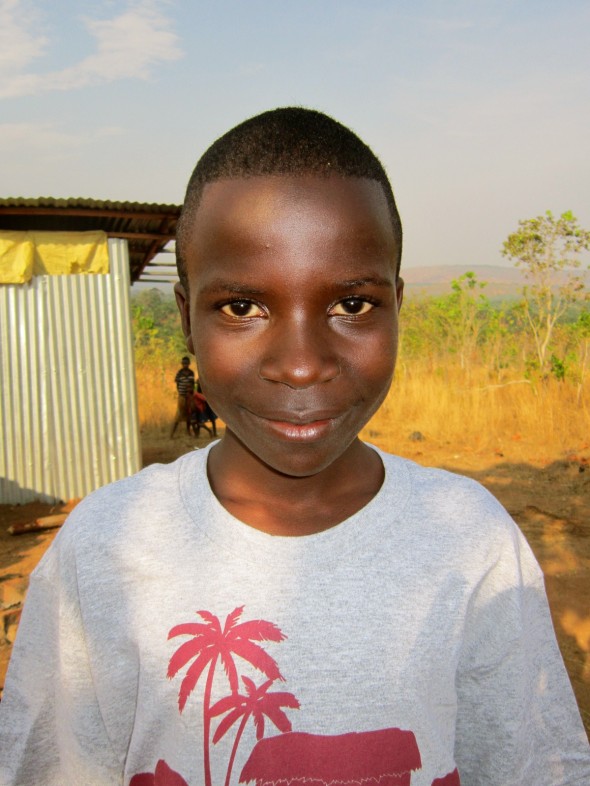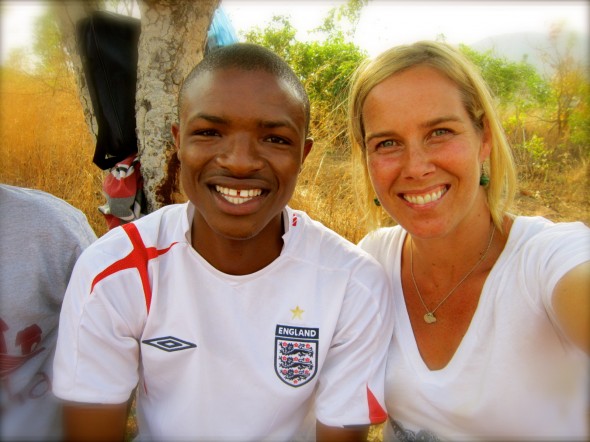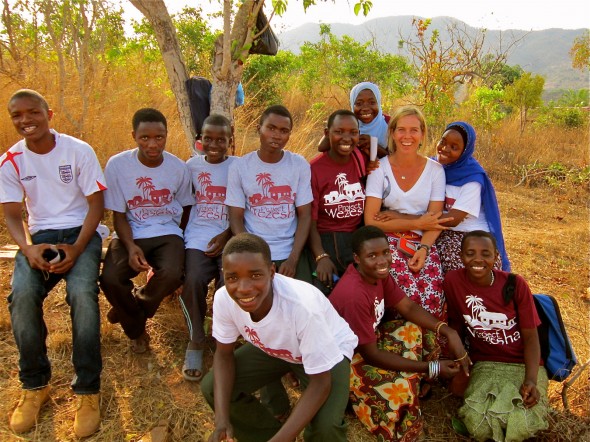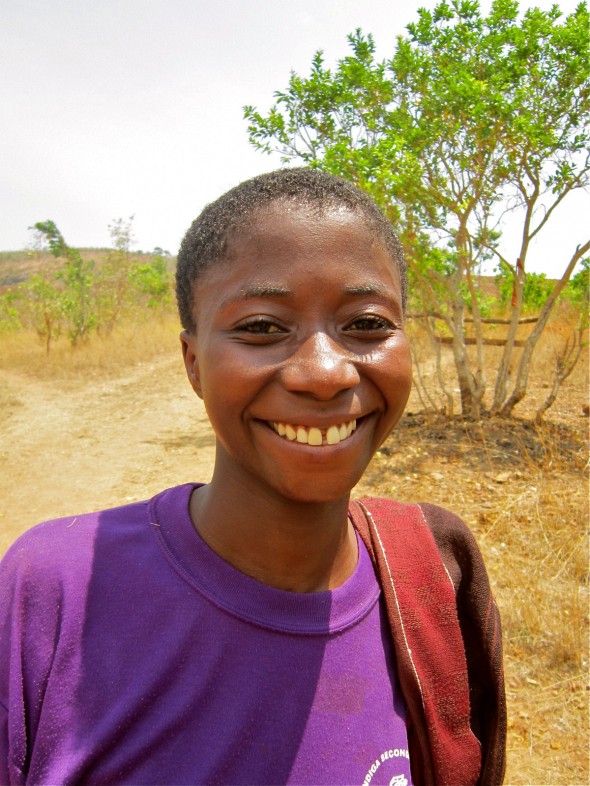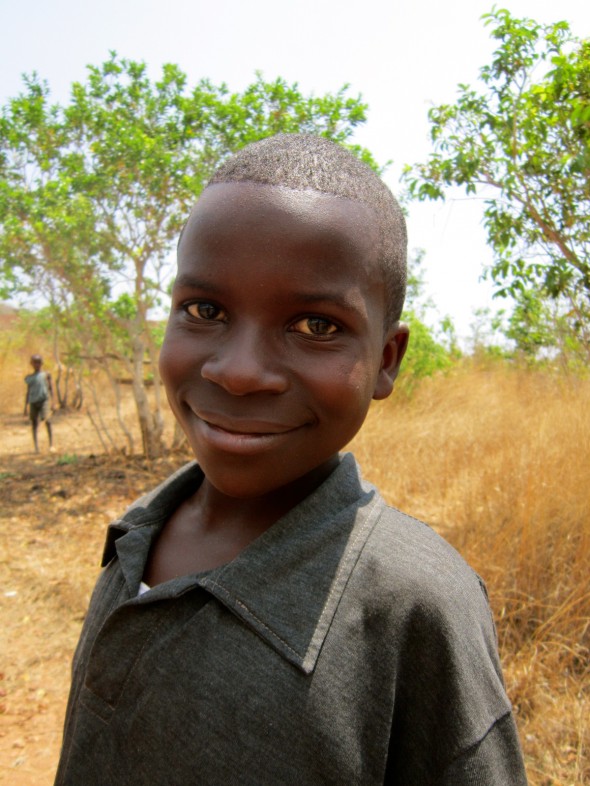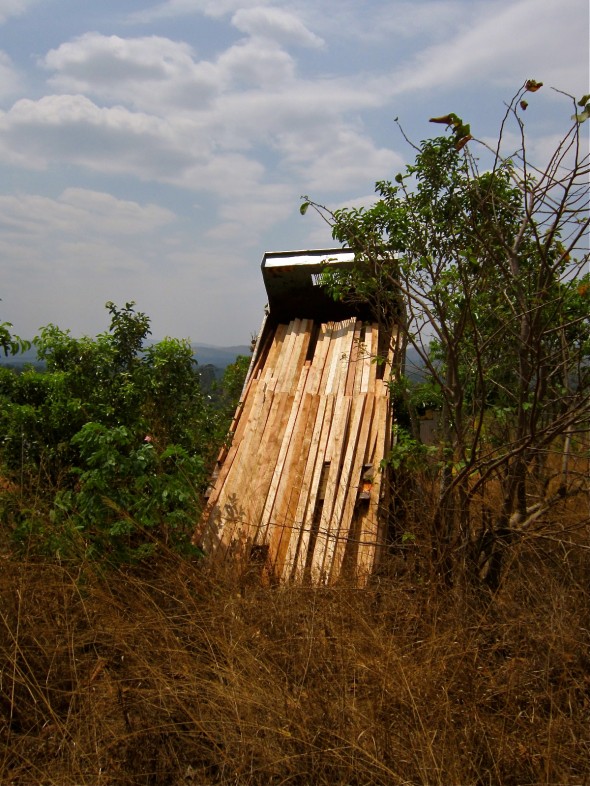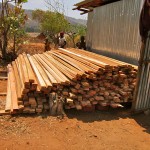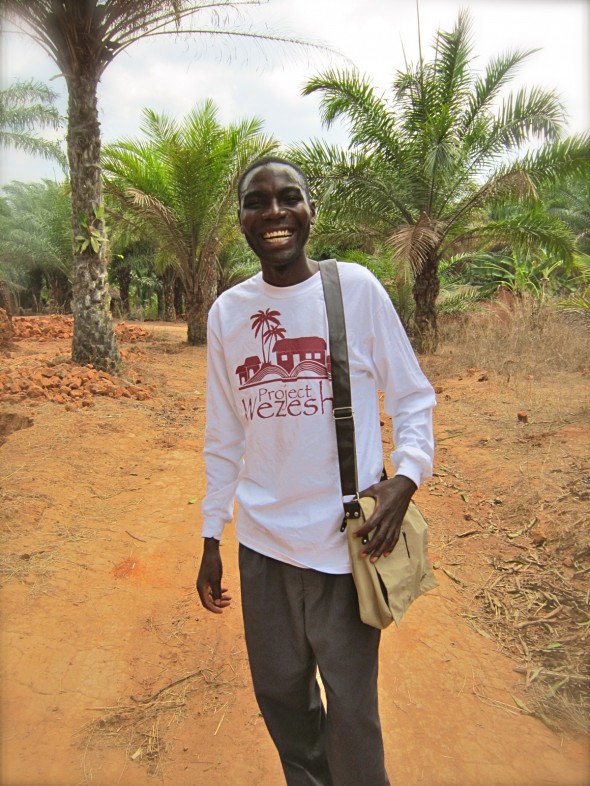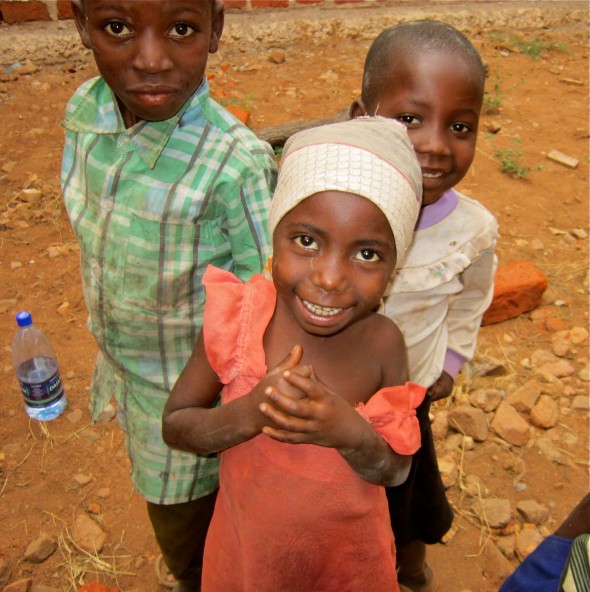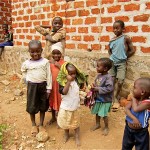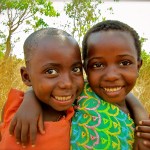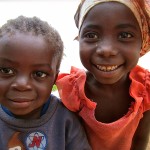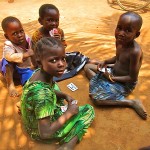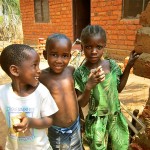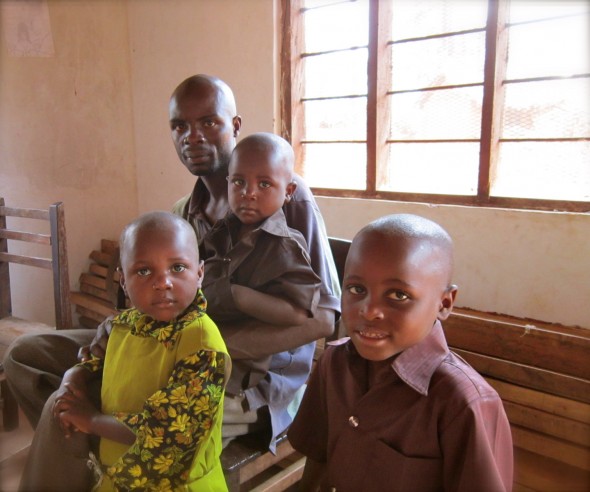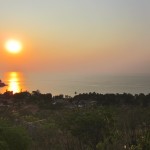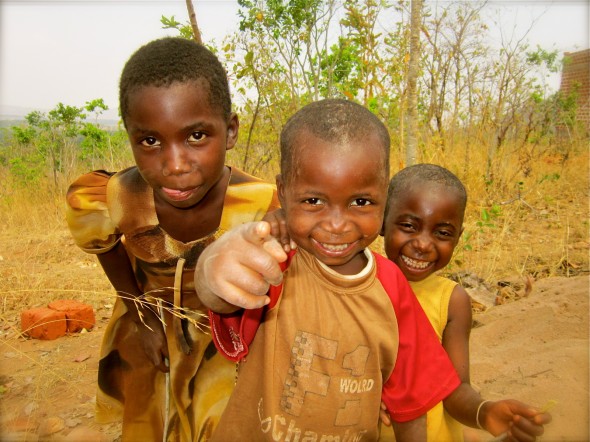 Behind all the pretty pictures of the children and the growing progress of the school, there is the business side of things – which in Tanzania can sometimes be frustrating. At other times, it can be quite enjoyable to be part of – especially coming from another culture where business just unfolds differently. I’ll start with the frustrations, since that’s what always greets me when I arrive after a year away.
Behind all the pretty pictures of the children and the growing progress of the school, there is the business side of things – which in Tanzania can sometimes be frustrating. At other times, it can be quite enjoyable to be part of – especially coming from another culture where business just unfolds differently. I’ll start with the frustrations, since that’s what always greets me when I arrive after a year away.
First, I found out that some of the classrooms that I had hoped would have been built before I came weren’t built. I was hoping they would be finished so that we could get as many roofs up this summer as possible. Well, that was an unfair request on my part and while I was initially a little bummed that Lucas had just been letting the money pile in the bank instead of building – ultimately, he was right to do so. The money he didn’t spend was critical to reaching our goal of buying any roofs at all.
Expenses for roofing materials are high, to say the least – and they’ve only gone up since last year according to Lucas and our builder Isaya. So, with every cent that we had, we chipped away daily at the list of items that Isaya made up for us. And, since we’re working in a village, this list also had a line item for 3 separate truck transports from the town market to the building site. We bought hundreds of 2x4s, 2x6s, several sheets of aluminum, nails of three different sizes and some iron to join sections of the roof. Then we paid for 3 deliveries on two separate days. I really didn’t think it would tap the bank, but these are the first roofs I’ve put in place and now I know what to expect for the next 3 sections of the school.
Of course, I never get to go shopping for materials because as soon as they see me, the price changes. So for me – being somewhat of a control freak and always wanting a fair price – handing over stacks of cash and letting the transactions take place in good faith is hard. (It’s always cash here. No checks, no cards – even when spending thousands.) But, as with Lucas, I trust Isaya – his brother and our builder and he always gets a receipt to show that what he estimated was the fair price. He is a good builder and has a good relationship with the shops. One day, I reached my max at the ATM and he had to be given some materials on his word until he could pay the next day. They let him, and as we promised, the shop was paid the next day. We’ve heard stories of people in town taking materials, promising to pay the shopkeepers back and months later – they still haven’t surfaced. This ruins the trust for everyone, but luckily – Isaya is reliable and they know where to find him. J
The next matter of frustration was the laundry list of gossip and ‘corruption’ that Lucas presented me with. First, “people” in the village were saying that Lucas was rich and that Project Wezesha paid him so much that he personally had $100 million USD. Can you imagine? As if I’d walk an hour a day instead of taking ‘boda boda’ (motorcycle taxi) every time or better yet, as if I wouldn’t rent an SUV in Dar es Salaam and fly it in on my private jet … if I had a million dollars, let alone 100 million dollars. It’s just so outlandish, but nonetheless, it puts a lot of pressure on Lucas when people think he has that much money. Along similar lines, my friend Jane was part of a women’s group that Lucas helped them form – it’s nothing new to the region. There are many women’s groups and they all operate a little differently but the general point is to let the women serve as a bank to the group. They pay a set amount every month into the pot and each month, one woman takes the pot. In some cases, this is just a rotation and you know that every x number of months you get a chunk of cash. If you have an emergency, the group can bump you up to help pay for the doctor or a funeral. In other systems, you have to pay the pot back after you earn the money back from an enterprise that you start with that cash advance. In any case, Jane – being a friend of Lucas and me – was also touted to have had $70 million dollars. Wow.
In more ‘official’ realms, I learned that an important local leader was ‘resisting’ the villagers to help with traditionally contributed services – such as coming to the building site on scheduled basis (rotating districts of the village) to help carry sand, stone and water to the site for the building to continue. He was hoping to secure support form the villagers for upcoming elections by encouraging them to relax, drink coffee, don’t feel pressure to help, “be free”. So, Isaya was very disappointed in the villagers. He said the same few people would come to help and even they weren’t coming much anymore. He also said it was mostly women that were helping. Most men here would join me in saying, “Of course.”
Then finally, there was the tiny matter of the village government trying to stake claim to the storage unit that was built to keep all building materials during the course of the construction. It’s a moot point now because we still have months to go before we’re done, but the reality is that it will be broken down toward the end and the materials that make up the store will be used to make latrines.
But – now for the upside!
First of all, in my desperation about how much the roofing cost and my disappointment that more classrooms hadn’t been finished, I told Lucas – “We need support – big time.” I was feeling like I wouldn’t be able to keep chipping away like this – being the only person responsible for generating income, pulling my friends into my efforts as volunteers over and over and constantly asking my friends and family to donate again and again. As I’m well aware – it’s not sustainable and at some point, I will burn out.
So, Lucas and I worked our way up some government channels until we were in the big fancy office of the District Commissioner, explaining our situation. He advised us on who to talk to and luckily it was someone that Lucas actually knew – the Division Commander of Mwandiga – a large region within Kigoma that oversees several villages, including Mgaraganza. In our meeting with this gentleman, my shoulders finally fell back into place and I was breathing easy again. He told us the next steps, said he would support us in our efforts by arranging a big meeting with the village government and then the village citizens and he expressed his sincere gratitude for our support of the village with Amahoro Secondary School.
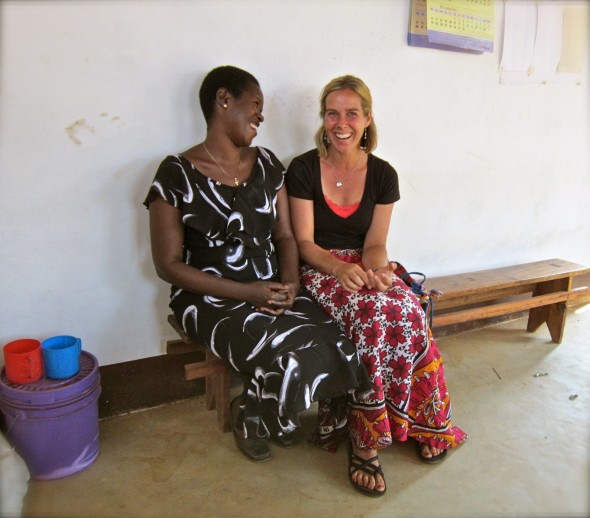 On the day we were to meet the village government, I was reminded a few times that, as Lucas always says, “This is Tanzanian peoples, Rai.” We showed up like Americans – right on time at 9am – having left my hotel at 7:30am to make it. We took a dala dala to Mwandiga and then splurged on a ‘boda boda’ so we’d arrive, not only on time but not too tired or sweaty. Of course, only two people were present. They told us to ‘be free’ and come back around 10:30.
On the day we were to meet the village government, I was reminded a few times that, as Lucas always says, “This is Tanzanian peoples, Rai.” We showed up like Americans – right on time at 9am – having left my hotel at 7:30am to make it. We took a dala dala to Mwandiga and then splurged on a ‘boda boda’ so we’d arrive, not only on time but not too tired or sweaty. Of course, only two people were present. They told us to ‘be free’ and come back around 10:30.
Unfortunately, Jane was at Gombe with Ashahadu, so we strolled to her mother-in-law’s house and chatted for a while. I got to hold babies (as always J) and listen to Ashahadu’s mother tell me that I need to take her to America. She said it again and again, laughing and pointing to the sky, motioning as if she could see herself in the plane. She was so funny. She has a notion that going to America would make life so much better. I told her she’d have to work so much, she’d never see the sun again. We talked at length about the cost of living, how we take loans to buy houses and pay the bank our entire lives, etc. Here, they get enough money to buy 10 bricks – they buy ten bricks. When they have enough for a house, they build. After it’s built, they own. Of course, I told her life in America was great and that it’s a beautiful place to live. How could I not when all I could think of in that moment was trail running this fall among the changing and falling leaves.
The village government meeting started close to 10:30. It consisted of the Division Commander, the village Diwani (chief), the Mtendaji (Executive Officer) and the Serekali (village government) Chair. In addition, every village leader elected in 2010 was present – all the leaders from the various districts in Mgaraganza. These 25 men and 4 women will be in office for 5 years – so we’re starting fresh, but they’ll be our team until we finish. The format for the meetings is very formal. They have a very specific order of speaking and everyone who speaks is introduced with a synopsis of what they will cover. So, the order goes: Mtendaji, Chair, Division Commander and Diwani. Then back down the ladder and back up the ladder until they’re ready to invite guests to speak, which in this case were Lucas and I. Even then, they asked Lucas to speak first and then me.
The majority of the lead up to our speaking was a bit of a scolding about how disappointed the Division Commander was that more villagers weren’t helping on this project. He was very compelling in his speech (in Kiswhaili, but here’s the jist) –“In the entire world, mama Rai chose Africa. Now Africa is very big. And in all of Africa, mama Rai chose Tanzania. And Tanzania is ‘kubwa sana’ and in all of Tanzania mama Rai chose Mgaraganza Village. And she is a woman. And she is a student. She is not rich. She has no money. [points to the other women] You are poor, too. Could you go to another country and help? Could you go to Kenya and help? Burundi? Congo? But mama Rai, she is here.” This is how it goes … the words are strong, the persuasion level is high, heads are nodding, every few points earn a round of applause and then we speak.
Lucas introduced himself and our project. He reiterated the importance of village support to get this job done. I started to feel a little bad about all the scolding – but this is their custom and their approach is to repeat, repeat and reinforce the message over and over. So, when my time to speak came – I expressed my sincere thanks to those who have helped. I said I’ve seen the piles of stone and sand and I know people are contributing. But, I said that we do need continued support …. etc, etc, – like those before me. I told them I was so happy to be here and that I love this village, the people, the environment, the language. I told them – if only you could see how many people have contributed and how much they follow this project and support the entire village from so far away in the US and Europe.
I also gave a fairly long speech about Lucas. I told them he was my right hand and that I trust him with everything – the money, decision-making, meetings, etc. I said that he was an invaluable resource because he speaks English, sends updates via email, takes photos to keep me in the loop, visits our students at their secondary schools to pay fees and check grades, meets with leaders when needed and visits the school site to check on progress. And of course, he’s a dear friend and like a brother to me – so in addition to all the logistical support, he’s a joy to work with. I explained that I take no salary at all from Project Wezesha and Lucas only takes a very small salary for his trips to and fro and all the bookkeeping and traveling that he does for the job. I urged them to support Lucas by resisting people from engaging in gossip about him having a lot of money and purposefully keeping it all to himself. “It’s just not true.” I told them that he uses his small salary to feed his family – he lives with his mother, father, two younger brothers and sister.
I didn’t mention this in the meeting, but his family has very little income and relies primarily on Lucas and the sales of goats once in a while. His parents’ have a farm four hours (walking) from the house and once a year, they go there for up to 4 months to grow and then harvest. At harvest time, all the children (not kids, per se but Lucas and his adult siblings) walk out to the farm and then help carry the food home. The food consists of corn – corn only. They don’t sell the corn. They dry it and then grind it into flour and that feeds them for the rest of the year. They eat the flour in the form of ‘ugali’, a sticky white substance made when you cook the flour in boiled water. They also have some ‘mchicha’ (spinach) from another small farm closer to home that Lucas’ mother has. With any actual money they have, they buy beans, small fish (ndagaa) and sometimes rice. But mostly, it’s ugali, mchicha and beans.
So, back at the meeting – all went well. They allowed for a few leaders to speak and they mostly said they were grateful for the support and happy to have us in the village. They pledged their continued support and said they would encourage people in their districts to help. The village government also said they would meet with the Division Commander to draft the letter of support for the DC to take to the government to secure funding for the school in the next budget session (hopefully). I think it seems very likely! The Diwani said he would invite the DC to come to see the school in order to show them that it is happening. They are also planning to register the school so that they can perhaps open it in sections and have students begin attending Form 1. Then, as the blocks of classrooms are completed, the students will continue to be admitted until finally, we have a complete secondary school with students ranging Form 1 to Form 4.
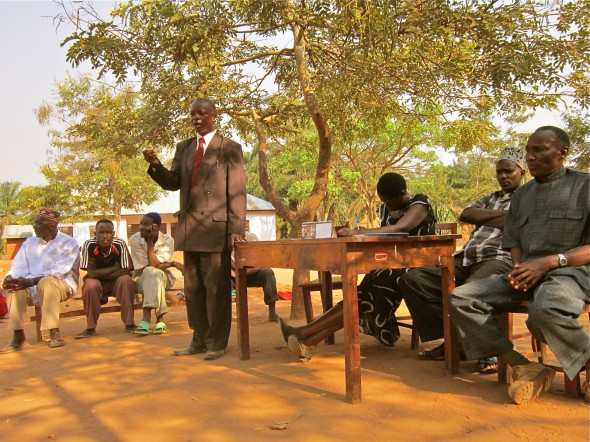 After this small meeting with village heads and the Serekali, we were invited to have lunch with several of them in the office. We had dried fish, rice and cabbage in a tomato sauce with Coca Cola. A feast of honor. Then, well – the next meeting was fun! The entire village was invited to come out for a Village Public Hearing. It unfolded similarly to the smaller meeting in terms of order of speaking and content, but added to the content was another harsh scolding because the villagers came over an hour late and even when they did show up, it was only a fraction of the village. But, by the time the meeting was wrapping up, a nice crowd had come. I got to speak again and introduce myself. It was funny because in our smaller meeting, they told me that some people still didn’t believe that there was a woman from America behind the school. So, I told them – “See, I do exist and my name is Rai. You can call me dada Rai rather than mzungu now.” And they all laughed. I told them about Lucas and his importance to the project and that they can trust him deeply. I told them about all my friends and family back home who support them from afar – “Hundreds of people in America have made this happen, not me alone.” I thanked them for coming and for any support they have given.
After this small meeting with village heads and the Serekali, we were invited to have lunch with several of them in the office. We had dried fish, rice and cabbage in a tomato sauce with Coca Cola. A feast of honor. Then, well – the next meeting was fun! The entire village was invited to come out for a Village Public Hearing. It unfolded similarly to the smaller meeting in terms of order of speaking and content, but added to the content was another harsh scolding because the villagers came over an hour late and even when they did show up, it was only a fraction of the village. But, by the time the meeting was wrapping up, a nice crowd had come. I got to speak again and introduce myself. It was funny because in our smaller meeting, they told me that some people still didn’t believe that there was a woman from America behind the school. So, I told them – “See, I do exist and my name is Rai. You can call me dada Rai rather than mzungu now.” And they all laughed. I told them about Lucas and his importance to the project and that they can trust him deeply. I told them about all my friends and family back home who support them from afar – “Hundreds of people in America have made this happen, not me alone.” I thanked them for coming and for any support they have given.
Then, I said – “I like coffee. Napenda kahawa … sana!” And they all laughed. “And I know that after I drink coffee, I have a lot of energy!” And they laughed again. “So, next time – after you finish your coffee and you have extra energy, take a walk up to the school and just see if Isaya needs your help.” And again, they laughed and nodded. Side note: the truth is, they seriously do sit in these large covered open air huts drinking coffee and playing games most of the day … the men only. The women are off chopping firewood, caring for babies, making food, and fetching water – no exaggeration. Some men are very hard workers and you always see them pushing a bicycle piled high with pineapple, charcoal, flour, bananas or any other items for sale or consumption. But more than less are just meandering about. Even the leaders were confirming this to be true. They were asking about life in the US and the Division Commander was wishing Tanzanians would work a little more like Americans. It’s a sacrifice in either direction – pace of life vs. development of society.
Throughout the entire public hearing there were many thanks to Project Wezesha for the support we’ve given by way of the school building and scholarship program. At the end of the meeting, they invited me up front and offered me a gift. The Diwani said, “We have little to offer you to say ‘thank you’, only our words. But we also want to gift you these kangas, which represent our tribe and our culture. We hope you will never forget Mgaraganza Village. Keep us in your mind always. May God bless you with good health, with continued support for this project and safe travels home. Thank you so very much from all of us here in Mgaraganza.” It was really quite overwhelming. I put my hand my elbow to take the kangas (showing respect when receiving something), curtseyed a little and turned to tell the entire village – “Urakoze Cane” which manes ‘Asante Sana’ (Thank You) in Kihaa, their tribal language. They all laughed and clapped.
After some small talk and greetings with a handful of villagers and some familiar faces, we hopped up on our motorcycles and sped off into the sunset. Literally. The Division Commander wouldn’t let Lucas and I walk back because ‘the time was not enough’. So, we took a boda boda to Mwandiga, took a dala dala to Kigoma and after saying ‘bye’ to Lucas I continued on foot along my dusty trail to the hotel to inhale a Kilimanjaro beer and some fish curry. Lala salama, dada Rai.
